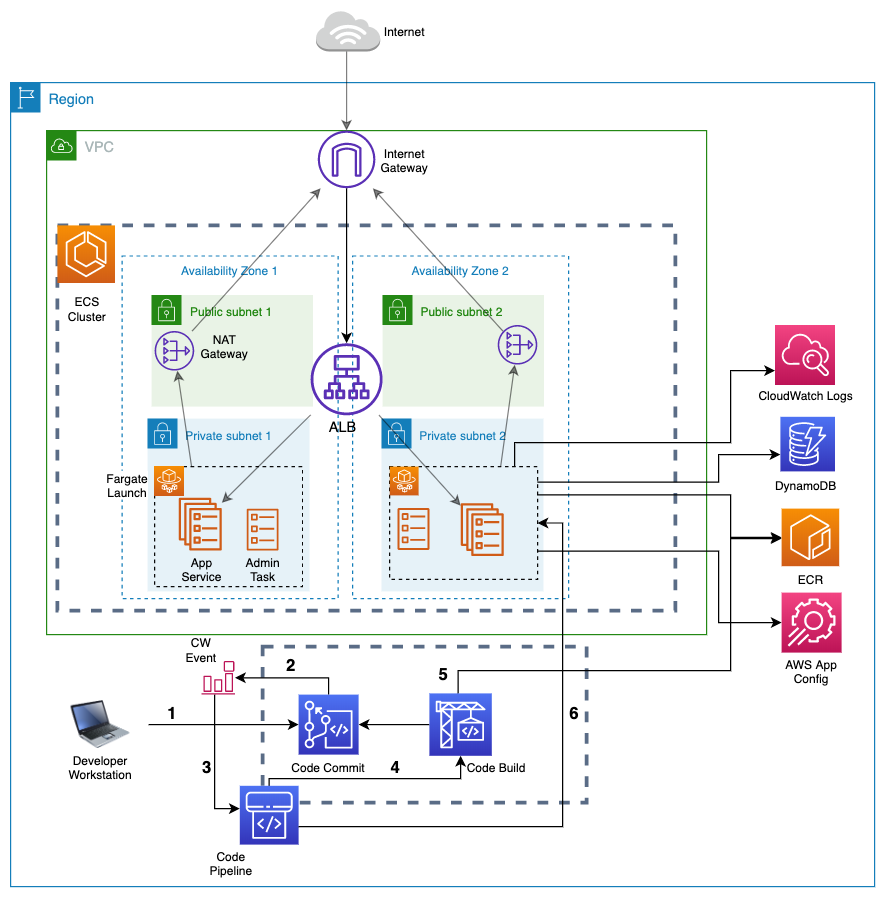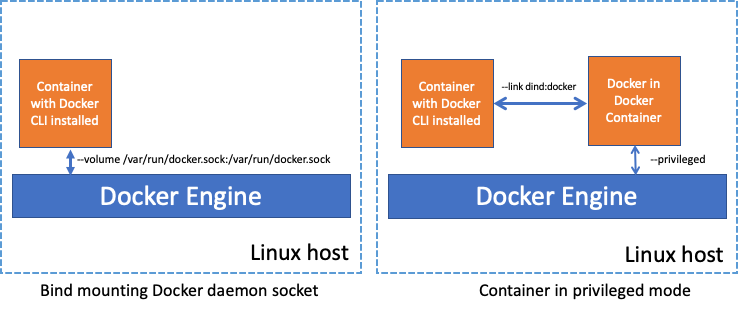Containers
Category: AWS Fargate
Developing Twelve-Factor Apps using Amazon ECS and AWS Fargate
Sushanth Mangalore and Chance Lee, AWS Solutions Architects, SMB Introduction The twelve-factor methodology helps you build modern, scalable, and maintainable software-as-a-service apps. The methodology is technology agnostic and has become a widely-adopted approach to developing cloud-native applications. There are a few different ways to develop twelve-factor applications on AWS. Solutions based on containers technology are a […]
Building container images on Amazon ECS on AWS Fargate
Note: The Kaniko project has been archived and is not actively maintained. Building container images is the process of packaging an application’s code, libraries, and dependencies into reusable file systems. Developers create a Dockerfile alongside their code that contains all the commands to assemble a container image. This Dockerfile is then used to produce a […]
Managing compute for Amazon ECS clusters with capacity providers.
Customers running containers are often challenged with having to manage and understand how to run and scale the compute for their clusters. For customers taking advantage of Amazon Elastic Container Service (Amazon ECS) on AWS Fargate, the burden is lifted as the underlying compute layer is fully managed by AWS, enabling the customer to focus […]
How Vanguard uses AWS X-Ray and Amazon CloudWatch to improve observability for Amazon ECS cloud applications
This post was contributed by Jeffrey Emberger, Technical Lead, The Vanguard Group and John Formento, Solutions Architect, AWS. Cloud applications are changing the speed at which companies can deliver new capabilities for their customers. With increased speed comes the need to more quickly, reliably, and inexpensively observe cloud application health. Observability is no longer an […]
How to build container images with Amazon EKS on Fargate
Note: The Kaniko project has been archived and is not actively maintained. This post was contributed by Re Alvarez Parmar and Olly Pomeroy Containers help developers simplify the way they package, distribute, and deploy their applications. Developers package their code into a container image that includes the application code, libraries, and any other dependencies. This […]
Theoretical cost optimization by Amazon ECS launch type: Fargate vs EC2
This post was contributed by Julia Beck, Thomas Le Moullec, Kevin Polossat, and Sam Sanders Customers often ask about best practices when using Amazon Elastic Container Service (Amazon ECS), in particular around the Well-Architected Framework pillar of Cost Optimization. Within this, choosing between the two different launch types, EC2 and Fargate, may be one of […]
Klook Case Study
About Klook: Klook, a world-leading travel activities and services booking platform, empowers travelers to discover and book on-demand local attractions, tours, transportation, food and exclusive experiences in more than 350 destinations around the world. More than 30 million people in over 180 markets use Klook’s website and award-winning app every month. Klook platforms support 41 […]
Delivering tree insights at scale at Aerobotics
This post is contributed by Nic Coles, Head of Software Engineering, Aerobotics Aerobotics is an agri-tech company operating in 18 countries around the world, based out of Cape Town, South Africa. Our mission is to provide intelligent tools to feed the world. We aim to achieve this by providing farmers with actionable data and insights […]
Fluent Bit Integration in CloudWatch Container Insights for EKS
Ugur KIRA, Dejun Hu, TP Kohli CloudWatch Container Insights CloudWatch Container Insights enables you to explore, analyze, and visualize your container metrics, Prometheus metrics, application logs, and performance log events through automated dashboards in the CloudWatch console. These dashboards summarize the performance and availability of clusters, nodes or EC2 instances, services, tasks, pods, and containers […]
Using Windows Authentication with Linux Containers on Amazon ECS
This post shows how to configure a Linux container running on Amazon Elastic Container Service (Amazon ECS) to connect to a SQL Server database using Windows (or Integrated) Authentication. Windows Authentication is the recommended mechanism to connect to SQL Server databases, but using it can be challenging when running containerized workloads.








